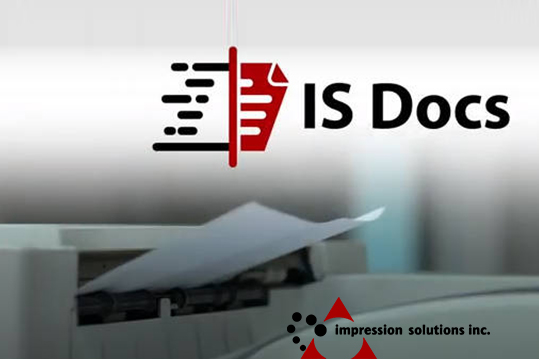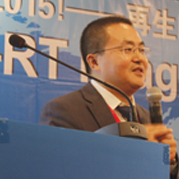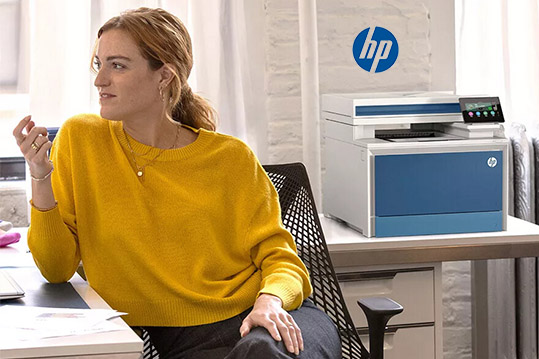The Future for Rechargers is Promising
 Steven Miller, President, Industrial Engineering & Development
Steven Miller, President, Industrial Engineering & Development

By now everyone in the imaging supplies industry has either heard about or experienced the legal hurdles surrounding Intellectual Property (IP) issues. Some of these hurdles include the OEMs suing companies over IP infringement and technological blockades that the OEMs have employed. One example is their introduction of killer chips over a decade ago that attempted to prevent any aftermarket cartridge solutions. Many cartridge remanufacturing companies and resellers are unsure of the future of the industry because of these hurdles that the OEMs have erected. These remanufacturers and resellers are constantly questioning whether the imaging supplies industry can compete with the OEMs and survive in this ever-changing competitive business.
I am here to say that the future of our industry is bright!
Creative Solutions
We are an extremely hard-working and resourceful industry. With every hurdle the OEMs throw at us, we are presented with a new opportunity for innovation. OEMs may attempt to build a monopoly via patents and creative designs, but no OEM has a monopoly on innovation.
Just look at how we have advanced our industry over the years by creative solutions. It wasn’t long ago that OEMs introduced cartridge chips to the market in an effort to prevent the use of aftermarket remanufactured cartridges to operate in a printer. Cartridge remanufacturers and resellers felt threatened by these “killer” chips because they were mostly considered anti-recycling devices. However, we weren’t phased by the attack from the OEMs, and instead responded quickly and developed aftermarket chip solutions that were able to effectively thwart the OEMs’ aggressive strategy. The OEMs tried to use anti-recycling cartridge chips to instill public fear in the aftermarket, but we stepped up to the challenge and advanced the industry by developing creative solutions.
Additionally, when the OEMs attempted to tarnish the image of the remanufacturing industry by classifying us as having inferior quality, we responded by producing cartridges that rivaled and in many cases surpassed the quality of OEMs, and when the OEMs started blocking remanufacturers with IP, we responded with our own IP. This is why I am proud today to announce some of the latest innovations in the industry’s technology.
High Yield Cartridges for Low Yield Printers
One new patent pending technology that is just now surfacing is the MPS CHIP™ line which has many advantages over OEM chips. One advantage is that a toner cartridge having an MPS CHIP™ will enable a high yield cartridge that would normally only operate in a more expensive printer model. This innovative device enables it to operate in less expensive printers that normally wouldn’t accept high yield cartridges. For example, the Lexmark T654 36K yield cartridge physically fits in a T650 printer, but the OEM chip will not allow it to operate in the T650 printer because the highest yield cartridge that the T650 printer will accept is a 25K page yield cartridge.
With the introduction of MPS CHIP™ technology, remanufacturers are now able to use a 36K MPS CHIP™ on any cartridge core for the T650 family. This allows the cartridge to work in the T650, T652, and T654 printers. Thus, a remanufacturer simply adds the 36K MPS CHIP™ to the cartridge to allow that same high yield cartridge to now operate in the low yield T650 printer.
Since the T650 printer is the least expensive member of the T650 family, there are more installed T650 printers available for remanufacturing than the more expensive T652 and T654 printers. Thus, being able to use the low cost-per-page 36K MPS CHIP™ cartridge in the lower cost T650 printer with a high installed base exponentially increases an MPS dealer’s profits and also opens up a much larger mass of spent cartridges out there. This feature gives the remanufactured cartridge a competitive advantage over the OEM cartridge competing for MPS business because the demand from the MPS community for 36K T650 cartridges can only be sourced from the remanufacturing industry.
Other advantages of MPS CHIPS™ include the ability for the 36K chip to also work in the T650 family of multi-function machines such as, the X656. Additionally, because MPS CHIPS™ work in multiple brands of printers, the same T650 cartridge using the 36K MPS CHIP™ becomes a universal cartridge and will work in all of the brands of the Lexmark T650 family of printers including the Dell and IBM/Ricoh printers.
Another feature of MPS CHIPS™ is that they encompass multi-region technology. OEM printer manufacturers make region specific cartridges that are not compatible with printers of other regions. For example, an OEM cartridge for the Europe/Middle East/Africa (EMEA) region of printers will be rejected by another region such as, the Latin American (LA) region printers. However, MPS CHIPS™ have multi-region technology that allow cartridges to work in every region worldwide. Compared to OEM cartridges, cartridges with MPS CHIP™ functionality are more desirable in the market and give the remanufacturing industry a multitude of advantages over the OEMs.
No Longer Ship Untested Cartridges
Another tactic that OEMs have used against remanufacturers for many years is to “marry” a cartridge chip to the first printer in which the chip is used. Once the cartridge chip has married the printer, the cartridge cannot be removed from its linked partner and installed into a second printer. Thus, this marrying feature is problematic in that it does not allow a remanufacturer to post-test the cartridge and chip combination before they are shipped to an end-user. The problem is that if the chip is post-tested it will become married to the test printer. As a result, remanufacturers are left with no other choice than to introduce cartridges into the market with chips that haven’t been tested, resulting in higher defect rates.
For quality control purposes, all cartridges and chips should be post-tested before being packaged and shipped to the consumer, which is why I am also proud to announce another new patent pending technology for the remanufacturing industry: the TRANSFORMING CHIP™. TRANSFORMING CHIPS™ are able to defeat the printer’s marrying technology so that the chip can be used in multiple printers. This enables the chip to be post-tested in a recharger’s test printer without marrying that printer. Therefore, it can then be used in any end user’s printer.
Another feature of TRANSFORMING CHIPS™ is directed toward MPS high yield jumbo cartridges. OEMs have designed printers that will not allow higher yield jumbo cartridges by limiting the allowable yield of a cartridge to a fixed yield decided by the printer instead of the cartridge chip. So a printer that only allows a cartridge to yield 5,000 pages will monitor the cartridge chip and not allow the cartridge yield to exceed the 5,000 page limitation regardless of whether the cartridge contains more toner or ink.
However, an MPS TRANSFORMING CHIP™ automatically modifies itself during operation with the printer, so that the printer recognizes the chip as a completely new chip each time the chip is modified. Thus, a cartridge chip that would normally be limited by a printer to print no more than 5,000 pages, is now able to exceed the 5,000 page limit. Once again, this allows remanufacturers to provide a superior cartridge compared to the OEM, while also becoming exponentially more profitable by providing higher yield cartridges than the printer would normally accept. This is yet another example of the aftermarket creating innovative products that are not available from OEMs.
These technologies are just a few of the recent innovations in our industry. Undoubtedly OEMs will continue to attempt to stifle our industry, but one common theme rings true: we are strong and with every road block the OEMs present we will be driven even harder to pioneer and create new technologies to sustain our success.
It is for the above reasons that I can say with confidence, the future for the cartridge recharging industry is bright indeed!
There’s a lot more news and information about the industry in this month’s Recycling Times magazine:
http://www.irecyclingtimes.com/Magazines?magazine_category_id=2




Leave a Comment
Want to join the discussion?Feel free to contribute!